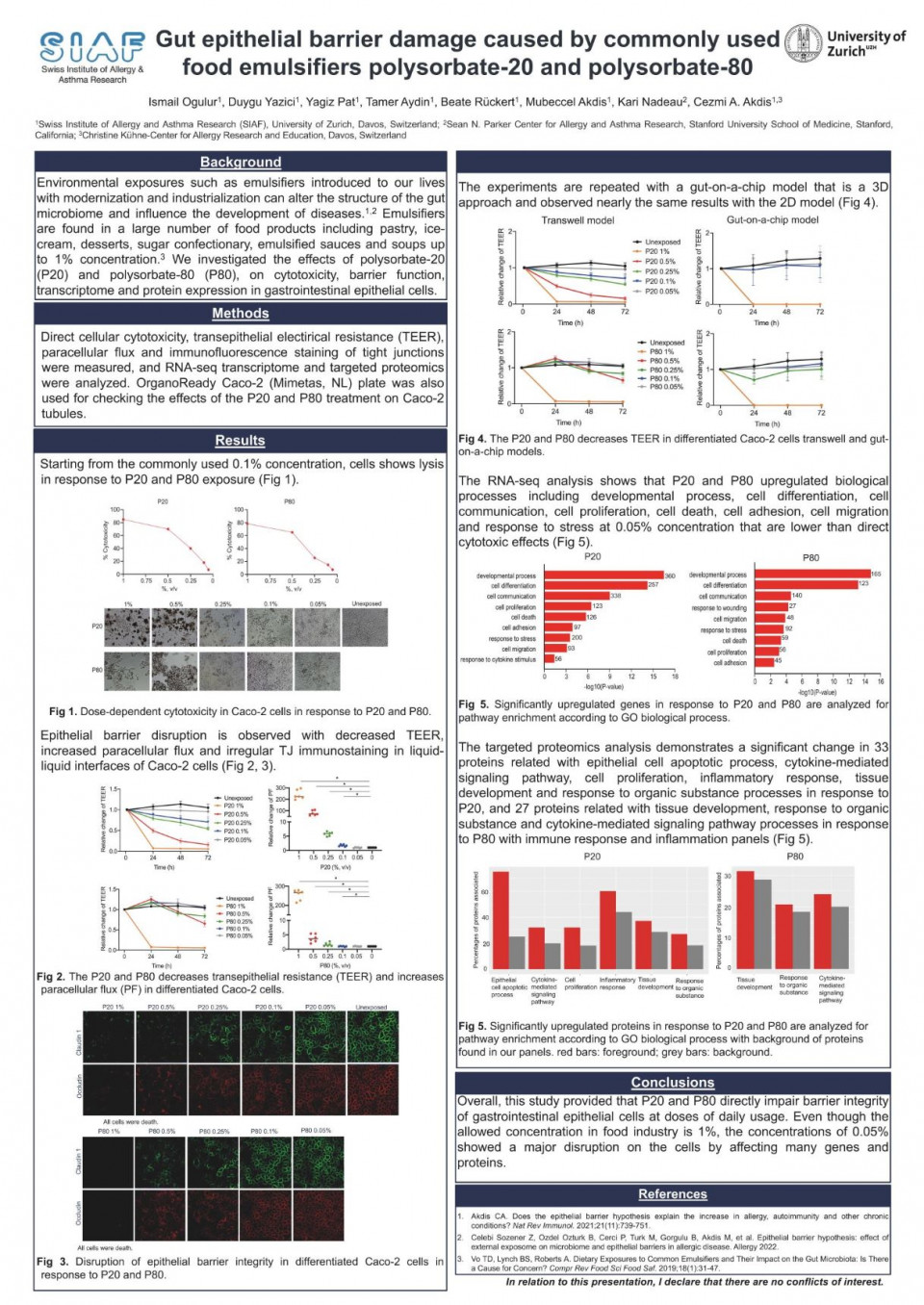Environmental exposures such as emulsifiers introduced to our lives with modernization and industrialization can alter the structure of the gut microbiome and influence the development of diseases. Polysorbate emulsifiers are a class of food additives used in food processing commonly used in pastry, bread, ice creams etc. We investigated the effects of polysorbate-20 (P20) and polysorbate-80 (P80) on cytotoxicity, barrier function, transcriptome and protein expression in gastrointestinal epithelial cells.
Enterocytic liquid-liquid interfaces were established by culturing Caco-2 cells on permeable supports, emulsifiers were added to the apical compartment individually or together, and then cytotoxicity, transepithelial-electirical-resistance (TER), paracellular flux and immunofluorescence staining of tight junctions were measured. Moreover, RNA-seq transcriptome and targeted proteomics were analyzed. Starting from the 0.1% concentration, cells showed lysis in response to P20 and P80 exposure. A disrupted epithelial barrier was found with decreased TEER, increased paracellular flux and irregular TJ immunostaining in liquid-liquid interfaces of Caco-2 cells. We also used gut-on-a-chip model that is a 3D approach and observed nearly same results with 2D model.
The RNA-seq analysis showed that P20, P80 and P20+P80 together upregulated biological processes including developmental process, response to starvation and response to organic substances. Apoptotic process was significantly upregulated in response to both P20 and P80, whereas cell differentiation, cell-cell adhesion and response to wounding pathways were upregulated only in response to P80. The RNA-seq analysis also showed regulation of genes encoding tight junction and adherence junction in response to P20, P80 and P20+P80 together. The targeted proteomics analysis revealed significantly change in 33 proteins in response to P20, 26 proteins in response to P80, and 23 proteins in response to P20+P80 related with immune and inflammation response.
Overall, this study provided that P20 and P80 directly impair barrier integrity of gastrointestinal epithelial cells and are potent at doses of daily usage.
